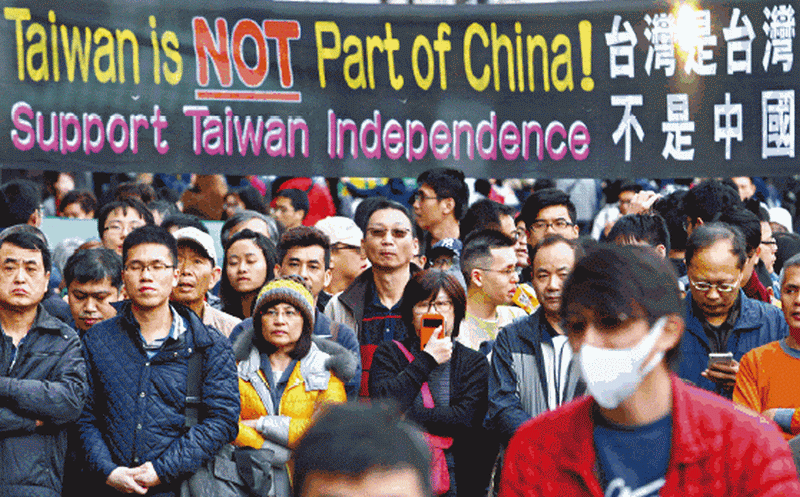Photo Credit: Getty Images
The Taiwan independence movement, advocating for the island's recognition as a sovereign state distinct from China, has intensified in recent years, heightening tensions with Beijing. This movement is fueled by a growing sense of national identity among Taiwanese citizens, many of whom increasingly identify as Taiwanese rather than Chinese. The ruling Democratic Progressive Party (DPP), which supports the notion of Taiwanese sovereignty, has seen significant electoral victories, reflecting a public sentiment that favors distancing Taiwan from China's political and economic orbit.
China, however, views Taiwan as an inalienable part of its territory, a stance rooted in the complex history of the Chinese Civil War and the subsequent split in 1949 when the Nationalist government retreated to Taiwan. Beijing's "One China" policy asserts that there is only one China, and Taiwan is part of it, a position that has been a cornerstone of Chinese foreign policy for decades. To counter the independence movement, China has ramped up its military presence around Taiwan, conducting regular military drills and flying warplanes into Taiwan's air defense identification zone. These actions are meant to signal Beijing's readiness to use force if necessary to prevent Taiwan's secession.
Internationally, Taiwan's quest for recognition faces substantial obstacles. Most countries, including the United States, do not formally recognize Taiwan as a separate state, adhering instead to the "One China" policy to maintain diplomatic relations with Beijing. However, Taiwan enjoys unofficial support from several nations, and its participation in international organizations, albeit under various designations, highlights the island's de facto independence. The U.S., in particular, maintains a policy of "strategic ambiguity" toward Taiwan, providing arms and political support to deter Chinese aggression while not explicitly endorsing Taiwanese independence.
This geopolitical standoff has broader implications for regional and global stability. The Taiwan Strait is a critical shipping lane, and any conflict there could disrupt global trade. Furthermore, Taiwan is a major player in the semiconductor industry, and any destabilization could have significant repercussions for the global technology supply chain. The increasing tensions have prompted concerns among neighboring countries and global powers about the potential for a military conflict, which could draw in the United States and its allies, leading to a broader regional or even global confrontation.
In conclusion, the rise of the Taiwan independence movement is a flashpoint in cross-strait relations, exacerbating tensions with China and posing significant challenges for international diplomacy. As Taiwan continues to assert its distinct identity and seek broader international recognition, the delicate balance of power in East Asia remains precarious, with profound implications for global peace and stability.


